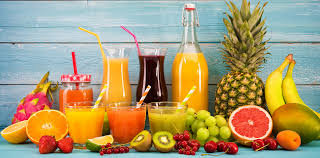Coffee is probably the most widely consumed nootropic beverage. Most of its brain benefits come from caffeine, although it contains other compounds like the antioxidant chlorogenic acid that may affect your brain as well Trusted Source
One review noted that caffeine may improve focus, alertness, reaction time, and memory in doses of 40-300 mg, which is the equivalent of about 0.5-3 cups (120-720 mL) of coffee
Coffee may also protect against Alzheimer's disease. In a weeklong mouse study, a dose equivalent to 5 cups (1.2 liters) of coffee daily, or about 500 mg of caffeine, helped prevent and treat Alzheimer's
However, human studies are needed.
Keep in mind that caffeine is known to be safe at levels up to 400 mg per day, or about 4 cups (945 mL) of coffee
Green tea's caffeine content is much lower than coffee's. Yet, it also boasts two promising nootropic compounds - l-theanine and epigallocatechin gallate (EGCG).
Studies suggest that l-theanine may promote relaxation, as well as that l-theanine combined with caffeine may improve attention. A review of 21 human studies found that green tea as a whole may support focus, attention, and memory .
Additionally, EGCG is able to enter your brain through the blood-brain barrier, meaning it could exert beneficial effects on your brain or even combat neurodegenerative diseases. Nonetheless, more research is necessary Trusted Source
Green tea’s caffeine content is much lower than coffee’s. Yet, it also boasts two promising nootropic compounds — l-theanine and epigallocatechin gallate (EGCG).
Studies suggest that l-theanine may promote relaxation, as well as that l-theanine combined with caffeine may improve attention. A review of 21 human studies found that green tea as a whole may support focus, attention, and memory
Kombucha is a fermented drink usually made from green or black tea, plus fruit or botanicals. Its major benefit lies in introducing beneficial bacteria called probiotics to your gut.
Theoretically, improved gut health may boost brain function via the gut-brain axis — a two-way line of communication between your gut and brain. However, little research supports drinking kombucha specifically to bolster brain function
You can make your own or buy bottled brands of kombucha.
Blueberries are rich in polyphenol plant compounds that may provide brain-boosting benefits. Anthocyanins — antioxidants that give these berries their blueish-purple hue — may be largely responsible
Likewise, blueberry juice is loaded with these compounds
Green juice combines green fruits and veggies, such as:
- dark leafy greens like kale or spinach
- cucumber
- green apples
- fresh herbs, such as lemongrass
Green smoothies may also contain ingredients like avocado, yogurt, protein powder, or bananas to add creaminess and nutrients.







.webp)

















